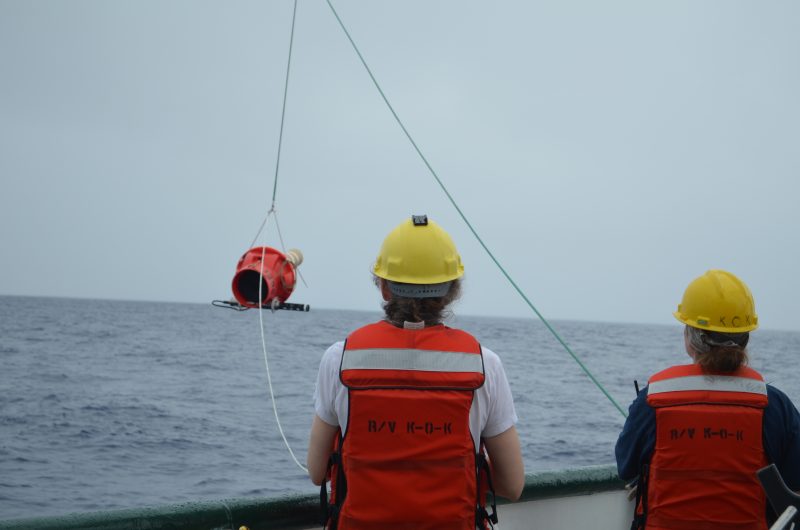6 March 2019
Deep diving robots find warming accelerating in South Pacific Ocean waters
Posted by larryohanlon
By Monica Allen
New research analyzing data from deep-diving ocean robots and research cruises shows that the coldest, near-bottom South Pacific waters originating from Antarctica are warming three times faster than they were in the 1990s.
“Measuring the warming occurring in these deep ocean waters helps us understand one of the drivers of sea level rise and will help to improve predictions of future sea level,” said Gregory C. Johnson, a NOAA oceanographer and co-author of two recently published research papers appearing in the AGU journals Geophysical Research Letters and Journal of Geophysical Research: Oceans. As ocean waters warm, they expand, contributing to rising seas.
New autonomous ocean robots called Deep Argo floats are able to dive down to depths of nearly four miles to collect data. Operating year round, they are improving our ability to monitor how heat is taken up by the ocean. The warming ocean affects not only sea level rise, but also weather patterns and long-term climate.

Dr. Elizabeth Steffen (left) and Marine Tech Elizabeth Ricci (right) deploy at Deep SOLO float. Credit: NOAA
Deep Argo enhances data from ship surveys
The research combines temperature data taken from ship-based surveys by U.S. researchers and international partners conducted at decadal intervals with the continuous, near real-time data from an array of 31 Deep Argo floats, most of which were designed, built, and deployed by Scripps Institution of Oceanography scientists.
The ship-based data show that deep ocean temperatures rose an average rate of 1-thousandth of a degree Celsius per year between the 1990s and the 2000s and that rate doubled to 2-thousandths of a degree per year between the 2000s and the 2010s. The Deep Argo floats reveal a tripling of the initial warming rate to 3-thousandths of a degree per year over the past four-plus years.
This warming rate of near-bottom temperatures is only a fraction of that of the surface ocean, but is striking for an area of the ocean long considered more stable.
This new research underlines the importance of expanding Deep Argo to improve the timeliness and accuracy of observations.
Working with Paul G. Allen Family Foundation, NOAA is poised to deploy Deep Argo floats in the Atlantic Ocean. With funding from the late visionary philanthropist, NOAA scientists will travel aboard R/V Petrel to deploy a large array of Deep Argo floats in the international waters off Brazil next year.
— Monica Allen is Director of Public Affairs for NOAA Research. This post was also originally published on the NOAA website.



 GeoSpace is a blog on Earth and space science, managed by AGU’s Public Information staff. The blog features posts by AGU writers and guest contributors on all sorts of relevant science topics, but with a focus on new research and geo and space sciences-related stories that are currently in the news.
GeoSpace is a blog on Earth and space science, managed by AGU’s Public Information staff. The blog features posts by AGU writers and guest contributors on all sorts of relevant science topics, but with a focus on new research and geo and space sciences-related stories that are currently in the news.